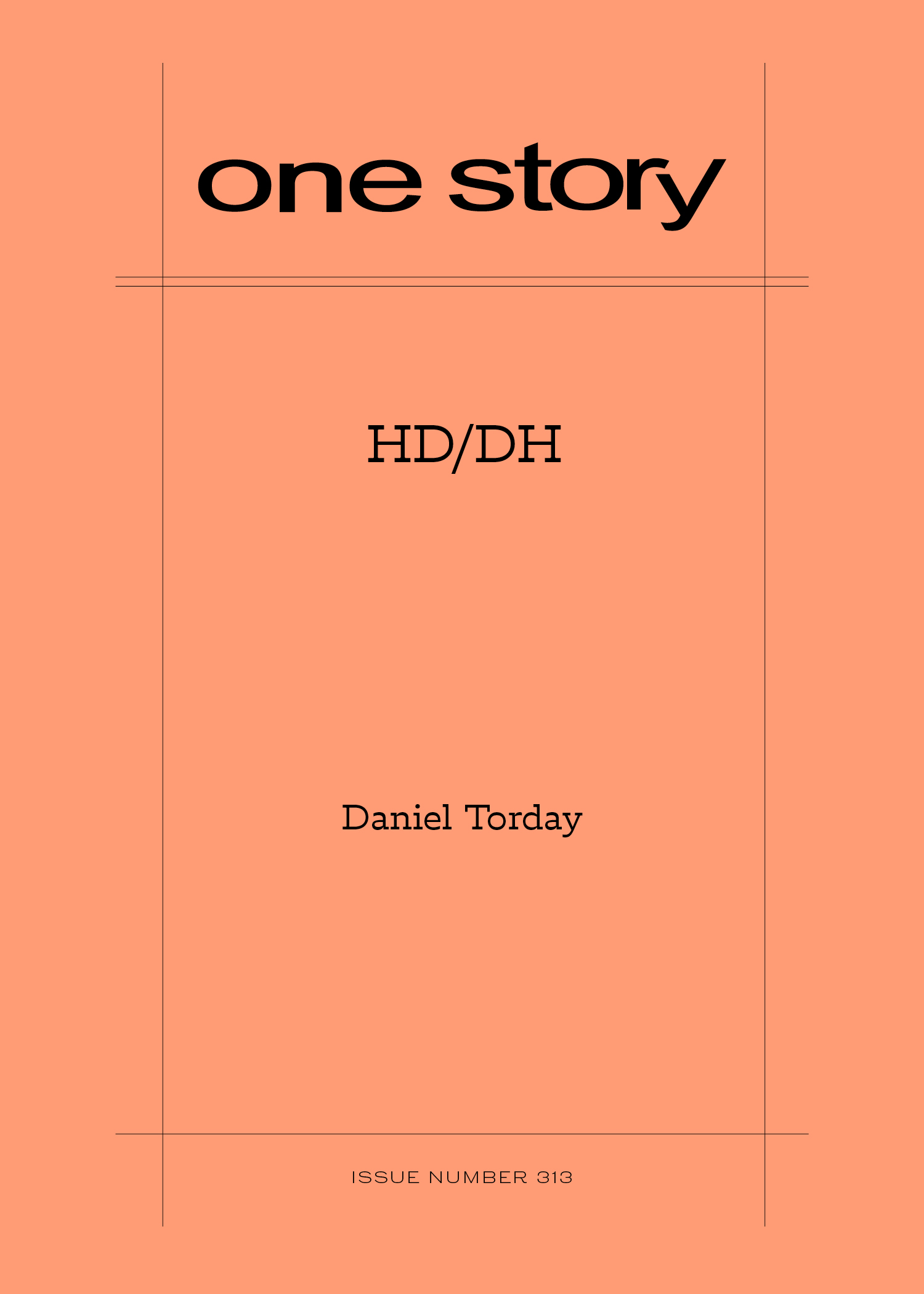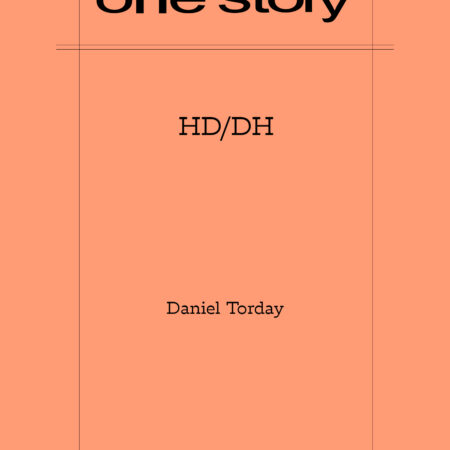
HD/DH
$2.50
469 in stock
Excerpt
Hilda
She thought maybe he had turned her into a circle. For too long she had been a straight line, wholly without circumference, absent diameter. She conceived herself as a circle, anyway; though she had not passed geometry and failed out of college as a result, she saw patterns everywhere. Words that repeated, shapes that repeated, thoughts that repeated. She would walk the streets around the perimeter of Mecklenburgh Square while under her feet imprecise rounded stones passed before her vision like falling stars.
She was currently the most celebrated imagist in all of London, and with her husband, Aldington, she had been alone. But now Lorenzo had written this letter. He and Freida were no longer safe in Cornwall where the townspeople heard Frieda’s Hanseatic accent and saw him with his brilliant red beard and wild eyes and shouted at them when they even went for a walk on the street. “We must go away where the angels come down to earth.”
Since she’d arrived in the UK, since she’d left behind the provincial life of her parents in rural Pennsylvania, no matter their proximity to Philadelphia, Hilda had thought of Lorenzo. She did not know she was awaiting a letter like this one, but now it was recompense for what Aldington had brought home with him from the front. Which, short of his own corporeal body, was nothing.
Daniel Torday
Daniel Torday is the author of four novels, most recently The12th Commandment. A two-time winner of the National Jewish Book Award for fiction and the Sami Rohr Choice Prize, Torday’s stories and essays have appeared in The Atlantic, The Paris Review, Tin House, and n+1, and have been honored by The Best American Short Stories and The Best American Essays series. A feature film adaptation of Boomer1, based on his screenplay, is currently in development. Torday is a Professor of Creative Writing at Bryn Mawr College.
Karen Friedman on “HD/DH”
One Story’s latest issue, “HD/DH” by Daniel Torday, is about creativity and intellect, ambition and loss, but most especially, it is a story about desire. Told in alternating points of view, it imagines the rumored relationship between the writers H.D. (Hilda Doolittle) and D.H. Lawrence.
But to position this story only in terms of its famous protagonists is a disservice to its universality. Torday takes us beyond the set pieces of historical fiction to probe the possibilities and limitations of his protagonists’ mutual, unspoken desire. What lingers is not a tawdry peeling back of the curtain, but rather an intimate understanding of what can happen when fantasy meets reality.
Don’t worry if, like me, your literary education contained only the scantest nods to either writer. Torday imbues his characters with enough humanity to leave even the least romantic among us a little breathless. Here’s hoping it leaves you a little breathless too.
Q&A by Karen Friedman
- KF: What was the inspiration for this story?
- DT: I’ve been a huge fan of the poet H.D. and the novelist D.H. Lawrence since I read both of them in a modernism class my first semester as an undergrad. They’re such interesting nodes of that period—H.D. so spare and imagistic, Lawrence such a maximalist. Both were a little out of fashion for a while, and both have had small revivals of late with New Directions bringing out beautiful editions of H.D.’s prose, and a couple of very good biographies of Lawrence, letting us see through his massive ego. So when I discovered in one of the Lawrence bios that there was a formative night when they either did or didn’t have an affair… oh, man. It just felt like the kind of thing I’d want to read. H.D. has a brief account of it in her very, very, thinly-veiled novel Bid Me to Live, but it’s super obscure and hard to parse. So I couldn’t help myself. I just had to imagine it. I’ve always loved Raymond Carver’s “Errand,” a story where he imagines Chekhov’s last days. And I’ve been taken with Colm Tóibín’s novels of Henry James and Thomas Mann. Those guys kind of gave me the courage to try.
- KF: Your story is grounded in the intellectual intimacy between Hilda and Lorenzo. Can you talk a little about point of view and how you landed on this structure?
- DT: More and more I’ve been realizing how many of the stories and novels I love are just intimate portraits of two or three people in a room, talking. I mean, Henry James could keep that going for like 800pp. I’m also a huge Mary Gaitskill fan, and she’s at her best when she just plows deep into two consciousnesses. Even Dune is mostly just characters talking. So when it came down to trying to get in there with both H.D. and Lawrence, it felt like that was the only way to do it: just let them each have their time at the front of the stage.
- KF: For both writers, is there any work that was particularly helpful in capturing their voice?
- DT: I feel like the weird challenge of this one was to avoid even trying to capture their style as writers, and to try to do an almost Woolfian magic trick of capturing their consciousnesses, not only their writerly tics. Impossible. So I did what I tend to do when I’m working on a novel—just inundate myself with the material. I read a ton of Lawrence’s nonfiction, which is some of my favorite of his work—his Italian essays are utter treasures. He basically wrote a poem every day of his adult life, so I immersed myself in all that masterful syntax (I also found an early poem of his that is entirely about his penis, which, yikes). I didn’t read all of the massive three-volume Mark Kinkead-Weekes bio, but I dipped in and out of it, particularly the period in which the story takes place. And of course I re-read Geoff Dyer’s Out of Sheer Rage, which is so funny and wonderful and in no way useful to writing about Lawrence. And for H.D., the novels were a revelation for me. I love her spare poetic lines, and though I knew her iconic early poems, the scope of her book-length poetry project Helen in Egypt comes across as something unique, a masterpiece. There’s a very odd and good biography from the ’80’s. But again, her novels. HERmione and Bid Me to Live are so interesting but also feel a little like traps, wanting to avoid imitation of style. The most exciting discovery for me was her memoir of her time in analysis with Freud himself, Tribute to Freud. What an outsized life H.D. lived! From showing poems to Pound to psychoanalysis with the father of psychoanalysis. Hers might be the most interesting literary life of the early twentieth century.
- KF: You play a lot with language in this piece (repetition, idiosyncratic compounds, unconventional verbs) enough that I asked a few times to make sure it was always intentional, which it was. What does that close language work provide the story?
- DT: Well, there was this subtle and challenging balance between finding my own style for telling this one, and not just aping the styles of two of the great stylists of the twentieth century. I’ve actually been thinking about this a lot with all the silly prognostication and hand-wringing about what A.I. might be able to do with language. You can carry off sounding like a writer with the complexity of Lawrence or H.D. for a sentence, maybe a paragraph or two. After that, it becomes mathematically impossible. I’ve been reading a bunch of Borges lately, trying him in Spanish for the first time, and in “Library of Babel,” he imagines a library so large its contents in words alone are more numerous than the entirety of the physical universe (I think it’s in Hernan Diaz’s great book on Borges that I learned this is mathematically true). Which is to say, language is a living, irreducible thing. You could take apart a human in all their cells and atoms and count them, but all you’d have would be a dead human. Inert. It’s when those impossibly complicated interactions are all happening together that we’re full of life. Same for a story or a book. It’s when all those words are in movement against each other that they make us feel things. And if you spend too much time trying to pull them apart with a tweezer… all you end up with is a dead book.
- KF: The scene in the scullery when Lorenzo first arrives is one of my favorites because it’s a masterclass in building tension. Can you talk a little bit about how that scene developed?
- DT: Ah, thanks! As you can tell, I’m a little bit of a language nerd, and when I was reading the nonfiction on H.D.’s apartment and saw words like “scullery” and “gas ring,” I just got all wound up. I knew I needed a confined space to put the two of these great writers in, to force them either to, you know, do it—or not do it. And the idea of a kitchen so small it has its own lovely, vaguely maritime name, was impossible to resist.
- KF: We’ve talked a bit about how the story exists beyond its historical context, the feeling that the characters matter outside their famous names. That said, did you feel any constraints with regard to the history of either H.D. or D.H. Lawrence and how did you work around it?
- DT: Oh, all kinds. Lawrence’s outsized misogyny and imperiousness were obviously going to be an obstacle—but weirdly, when I went back to the novels, they were always so tempered by what we love about him, his sensitivity and style, his pitfalls almost felt like antiquated stances more than closely held beliefs. And there’s been this lovely rediscovery of H.D.’s prose thanks to the genius editors at New Directions, so I knew I’d have to tread carefully. But honestly: why write a story if it’s not full of obvious pitfalls? They don’t sell expensive gear at REI to climb the hill outside your house.
- KF: What are you working on now?
- DT: I’m a couple years into writing a novel about a family at the heart of a chocolate empire, very (very) loosely based on the Hersheys, the Cadburys, etc. It follows them from the late nineteenth century to the present, when there’s a class-action lawsuit against them for causing the diabetes epidemic, kind of like the Sacklers and opioids. I’ve got a lot of pages, and a long long way to go.
- KF: And finally, what’s the best piece of writing advice you’ve ever received?
- DT: One thing I’ve learned from working with students for years now is that the best writing advice isn’t the broad, one-size-fits-all platitudes, but the kind of observations you can make after working with someone for weeks and even years. So for me, I was crazy lucky to get to work with George Saunders at Syracuse for three years. Probably halfway through my time there, he sat me down and said something like, “You know, it’s OK just to be an entertainer. In your work you’re sometimes trying to prove to your reader you know calculus or something. But when you let humor, joy, entertainment in, the work lives.” So. That was exactly what I needed to hear at exactly the right time. Lucky lucky lucky.
